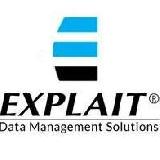What our clients say
-

"Knowledgeable and friendly Their tech support is always friendly and knowledgeable. I have never had any issue with downtime."
Boe VPN
Source:
-

"DNS Ninjas. Real People. Real Help. If you're looking for a DNS provider that actually talks to you like a human and not a ticket-bot, ClouDNS is the real deal."
Bandit
Source:
-

"Working with the team at ClouDNS has been very supportive. My experience has been excellent. The team is attentive, knowledgeable and skilled when it comes to Cloud DNS, and I can recommend their professionalism."
J. May
Marketing Chief @ Amaze Communication
-

"Als Webdienstleister bieten wir unseren Kunden Webhosting an und wir wollen ihnen garantieren können dass ihre Dienste auch bei Problemen mit unserem Server weiterhin funktionieren. Das ist was mich zu ClouDNS gebracht hat...
Grigor Yosifov
CEO @ Forci Web Consulting Ltd
-

"I've been using ClouDNS for the last ten years and I've never had a single issue. I only log in to tweak DNS settings or renew my domain, and it’s always super easy."
Todor Tsankov
Source:
-

"Dank an euch für die gute Arbeit!
Seit vier Jahren habe ich die kostenlose Variante eures Dienstes genutzt ohne einen einzigen Ausfall zu haben...Iskren Slavov
Founder/Full Stack Developer @ Wish Development Ltd
-

"I have been using ClouDNS for over a year now, and I couldn't be more satisfied with their services. From the start, their platform has been user-friendly and intuitive, making the process of registering and managing domains straightforward and hassle-free."
Răzvan Birișan
Source:
-

"Ich bin überglücklich mit euch. Ihr seit wirklich der BESTE DNS-Anbieter im Internet. Euer Kundendienst, die Preisgestaltung und Features sind erstklassig."
Christopher Nofal
Manager @ DreamLab LLC
-

"Amazing support, great services, and best prices."
Dion Vogliqi
Source:
-

"I wrote to their live chat support about a phishing website that was active, they took it down in 5 minutes! They care about security and their network reputation."
Brad B.
Source:
-

"Ich nutze ClouDNS seit 2014 und muss sagen dass sie wirklich unglaublich sind. Der Service den sie mir uns meinen Kunden bieten ist unvergleichlich. Sie bieten preis-/leistungstechnisch sehr gute Dienste an, vor allem in Hinsicht auf Anti-DDoS...
Daniel Ives
CEO @ Ives Network t/a Daniel Ives
-

"Fantastic customer service always! New customer with this company and I can't believe how well you are treated. Hard to find a great company like this one which provides such a great service and products."
Mel
Source:
-

"Ich nutze ClouDNS nun seit einiger Zeit und es funktioniert einfach toll. Ich möchte euch für eure fantastischen DNS-Dienste danken."
Helinton Dias
@ CloudExperts Consultoria
-

"Ihr Kundenservice steht ganz oben auf meiner Liste. Machen Sie weiter so!"
Sami Sälö
Chairman of the Board @ Salskea Oy
-

"Prompt efficient service every time! Very responsive and reliable company! Thank you!!!"
Salomé Barao
Source:
-

"I haven't had any issue in 10 years and the support service is amazingly fast!"
JORGE B
Source:
-

"Danke euch für die Möglichkeit in Bitcoins zu bezahlen. Zu einer Zeit in der das Bankensystem in der Ukraine kaputt ist, ist dies sehr wichtige für unsere Ukrainischen Kunden."
Mikhail Chutowski
-

"Got frustrated with the lack of knowledgeable support at GoDaddy, searched for alternate DNS providers and found ClouDNS. Could. Not. Be. Happier..."
Phillip McMahon
-

"ClouDNS provides the best in class DNS services. Prior to ClouDNS we were hosting and managing our DNS servers which was not core to our business so when we compared alternatives ClouDNS was the right fit..."
James Aker
President at Explait @ EXPLAIT, LLC
-

"Outstanding Service. I'm using ClouDNS since 2015 for personal domains. In 2018 moved the domains of the company were i work and we use your services since then. Would never though to go back!!!..."
Stanislav Filavtev
-

"Even during the trail period and free service their customer service is top tier. I've used other premium services but very few of them can match the quality with ClouDNS. "
Shouvik Pal
Source:
4.7 out of 5 stars on Trustpilot based on over 130 bewertungen
"The best DNS hosting on the GeoDNS Start tariff significantly accelerated and increased the availability of the resource"
Molepool.
Source: